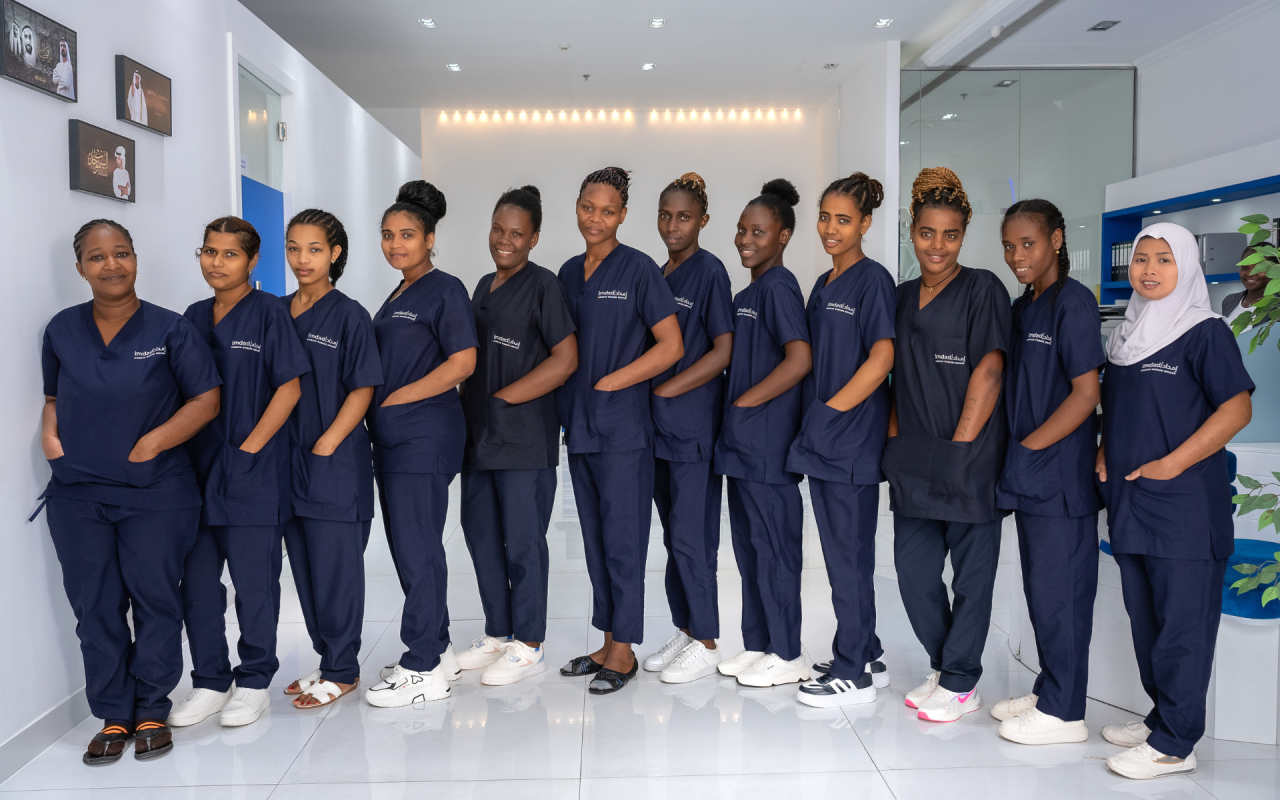Hiring the right domestic help in Dubai is not just about convenience—it’s about finding someone who fits your family’s rhythm, values, and everyday lifestyle. In a fast-paced city like Dubai, where households often juggle demanding careers, parenting, and social obligations, having a dependable and trustworthy maid can make all the difference.
But finding the right maid is more than just browsing through resumes. It involves understanding your family’s specific needs—whether it’s child care, elderly assistance, cleaning, or managing household routines—and matching them with the right personality, skillset, and cultural background.
In the UAE, many families find themselves choosing between two of the most sought-after nationalities: Filipino maids and African maids (primarily from Kenya, Uganda, and Ethiopia). Each group brings distinct strengths, cultural values, and levels of experience to the job. And while both are hardworking and capable, your lifestyle and expectations will determine who’s the best fit for your home.
Whether you’re a first-time employer or looking to replace your current maid, this guide is here to help. Let’s break down the differences between Filipino and African maids so you can make a thoughtful, informed decision—and feel confident in welcoming the right help into your home.
Language and Communication
Filipino Maids
One of the most appreciated qualities of Filipino domestic helpers is their strong command of the English language. Many have prior experience working in English-speaking households or have studied in environments where English was the primary medium of instruction. This fluency allows for clear, stress-free communication, especially in homes where English is the main spoken language.
Whether it’s giving detailed instructions, discussing daily routines, or ensuring child safety, Filipino maids tend to pick up tasks quickly and require less supervision. Their ability to communicate confidently also makes them a preferred choice for families with young children or elderly members who may need extra explanation, reassurance, or companionship through conversation.
Additionally, many Filipino helpers are also adept at using written communication—such as maintaining a log for baby feeding, medication schedules, or grocery lists—which adds an extra layer of reliability and organization to the home.
African Maids
African maids, particularly those from Kenya, Uganda, and Ethiopia, often have a working knowledge of English, though proficiency levels can vary. While some may speak fluently, others may initially struggle with grammar or vocabulary. That said, many of them are quick learners and become more confident over time as they become familiar with your household’s expectations and language use.
Families who are patient and willing to give some time for adaptation often find that African maids develop strong communication skills with continued exposure and gentle guidance. In multilingual households or homes that primarily use basic English for daily tasks, African maids perform very well.
Moreover, their eagerness to learn and connect often bridges any initial language gaps. Some even speak additional languages like Swahili or Arabic, which can be helpful in diverse communities or homes with multicultural staff.
Cultural Familiarity & Work Ethic
Filipino Maids
Filipino maids are widely respected in Dubai and across the Gulf region for their exceptional professionalism, gentle nature, and cultural compatibility with a wide range of households. Their values are often rooted in respect, family loyalty, cleanliness, and responsibility—making them a seamless fit for both local Emirati homes and expatriate families.
Many Filipino helpers come from caregiving backgrounds, having previously worked in roles involving childcare, elder care, and hospitality. This contributes to their disciplined and service-oriented mindset. They tend to be polite, soft-spoken, and emotionally intelligent—often sensing family dynamics and stepping in with support without being told.
Filipino domestic workers also show a deep sense of commitment to their roles. It’s not uncommon to hear of maids who have worked with the same family for 5 to 10 years, becoming trusted members of the household. Their cultural emphasis on respect and humility translates into a willingness to go above and beyond—especially when they feel appreciated.
African Maids
African maids, particularly from countries like Kenya, Uganda, and Ethiopia, are known for their strong work ethic, adaptability, and cheerful personalities. They bring energy and warmth into the home, often forming natural bonds with children and elderly family members. Their cultural background emphasizes community, resilience, and hands-on involvement, which reflects in their proactive attitude toward housework and caregiving.
Many African maids in Dubai are highly motivated, having left their home countries to pursue better opportunities for themselves and their families. They are eager to learn and tend to grasp household routines quickly, especially when provided clear expectations.
While they may initially be more reserved or unfamiliar with certain appliances or routines, most African maids quickly adapt with basic training and support. Their strength and stamina are often seen as an asset in homes that require physically demanding work, such as deep cleaning, gardening, or helping with larger families.
Importantly, African maids often bring a positive and respectful attitude that creates a calm and cooperative environment at home. Employers who treat them fairly and with kindness usually find their helpers remain loyal, hardworking, and dependable over the long term.
Experience with Children & Elderly
Filipino Maids
When it comes to caregiving, Filipino maids are often a top choice for families in Dubai—especially those with young children or elderly parents. Many have prior training or real-life experience in nursing, early childhood education, or caregiving roles, both in the Philippines and abroad. Their natural patience, compassion, and attention to detail make them well-suited for responsibilities that require emotional sensitivity and consistency.
With children, Filipino maids are usually nurturing, safety-conscious, and capable of managing everything from feeding and bathing to playtime and homework assistance. They often go beyond basic childcare to help build emotional comfort, becoming a trusted companion and second caregiver in the eyes of the child.
In households with elderly family members, Filipino maids demonstrate excellent bedside manners. They are known to assist with medication schedules, mobility support, meal preparation, and hygiene with dignity and care. Their respectful and calm approach makes elderly family members feel cared for and emotionally supported.
African Maids
African maids—particularly from Kenya, Uganda, and Ethiopia—also bring strong caregiving abilities, with many showing a natural warmth, energy, and sense of responsibility when looking after children and elders. Their approach is often hands-on, with a lively presence that children respond well to. They’re often praised for their ability to engage children in fun, active play while maintaining a structured routine.
For families with toddlers or active young kids, African maids can be a great fit, as they combine physical energy with attentiveness. Many are excellent at balancing playtime with responsibility, ensuring that kids are safe, fed, and emotionally engaged.
When caring for elderly family members, African maids offer respectful assistance and are especially good at adapting to the elder’s pace and preferences. While some may not have formal medical training, many are eager to learn and can follow care routines once instructed. With time, trust, and guidance, they build close bonds and offer heartfelt companionship to senior members of the household.
Adaptability and Long-Term Commitment
Filipino Maids
Filipino maids are often praised for their ability to blend seamlessly into different household environments, whether they’re working in a Western-style home, a local Emirati family, or a multicultural household. Their adaptability stems from years of overseas work experience, often in countries like the UAE, Saudi Arabia, Hong Kong, and Singapore, where they learn to respect diverse customs, dietary rules, and daily routines.
Many Filipino helpers are proactive—once they understand your expectations, they tend to follow through with minimal reminders. They’re also quick to learn how to use home appliances, manage daily schedules, and follow instructions with precision. Over time, they build a rhythm within the home that feels almost intuitive.
When it comes to commitment, Filipino maids typically seek stable, long-term placements. They value job security and are loyal to employers who treat them with fairness and respect. Many become more than just staff—they’re considered extended members of the family. This long-term mindset benefits families who don’t want the hassle of frequent replacements and want consistency in their domestic setup, especially for childcare and elder care.
African Maids
African maids, especially from Kenya, Uganda, and Ethiopia, also demonstrate impressive adaptability, even if their initial exposure to international households is more recent. What they may lack in experience at the start, they often make up for with a strong willingness to learn, adjust, and improve. Within weeks, many adapt quickly to cooking styles, cleaning routines, and family expectations.
Their resilient nature allows them to thrive in dynamic or high-energy households, including those with large families or young children. Once they understand your routines and preferences, they often show remarkable reliability and consistency in their work.
In terms of commitment, many African maids in Dubai are highly motivated to build steady, long-term employment to support their families back home. When treated kindly and given clear expectations, they are usually loyal and focused. Building trust may take a little time at first, but once the relationship is established, many families enjoy years of dependable support from their African helpers.
Cost Considerations
When hiring a full-time live-in maid in Dubai, cost is naturally one of the most important factors for families—especially those weighing long-term affordability with quality of service. While the exact salary can vary depending on the candidate’s experience, skillset, and negotiation, there are general trends when comparing Filipino and African maids.
Filipino Maids
Filipino domestic helpers typically fall on the higher end of the salary scale. This is due in part to their strong command of English, professional training, and reputation for reliability. Many families are willing to pay a premium for the peace of mind that comes with hiring someone who communicates well, is detail-oriented, and brings years of prior experience in caregiving and housekeeping.
In Dubai, salaries for Filipino maids can range between AED 3,500 to AED 4,500 per month, depending on whether the maid is hired directly or through a licensed agency. Additional costs may include visa sponsorship, medical insurance, flight tickets, and other government-mandated benefits, unless bundled in an agency package.
While Filipino helpers may be a larger upfront investment, many families find their consistent performance, communication ease, and low replacement rate make them a cost-effective long-term choice.
African Maids
African maids—especially those from Uganda, Kenya, and Ethiopia—are generally seen as more budget-friendly options while still offering strong work ethic and dependability. Their monthly salaries often fall between AED 2,000 to AED 2,800, making them accessible for families who need full-time support but have tighter budgets.
Though their initial English fluency or experience may be more limited than their Filipino counterparts, many African maids quickly develop into reliable, hardworking members of the household when given proper guidance and fair treatment.
Additionally, when hired through professional agencies like Imdad Center, all maids—regardless of nationality—come with a standardized package that includes visa, insurance, medicals, return flight, and unlimited replacements, helping families plan their total costs more transparently and avoid unexpected expenses.



